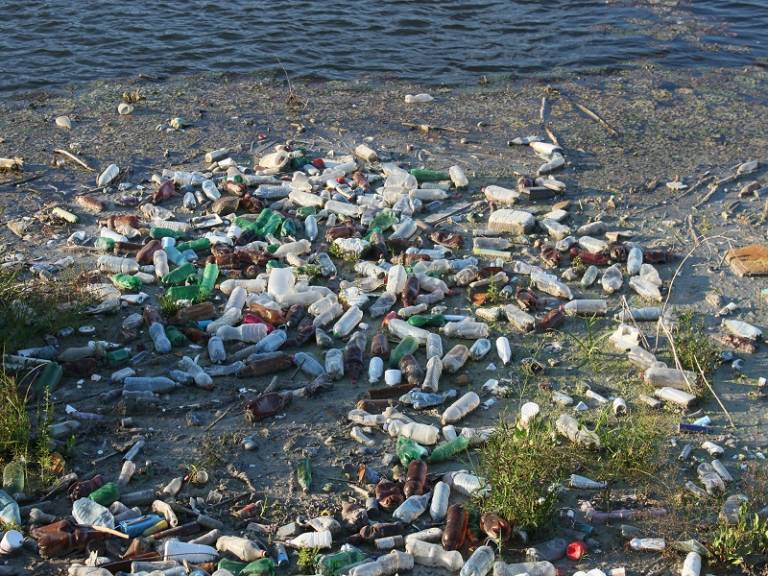UCL joins global commitment on plastic pollution
29 October 2018
UCL has signed a new global commitment to cut down on the use of plastic.

Led by the Ellen MacArthur Foundation in collaboration with UN Environment, the New Plastics Economy Global Commitment aims to create a 'new normal' for plastic packaging. The long term targets, which will be reviewed every 18 months, include:
- Eliminating problematic or unnecessary plastic packaging and moving from single-use to reusable packaging model
- Innovating to ensure 100 per cent of plastic packaging can be easily and safely reused, recycled or composted by 2025
- Circulate the plastic produced by significantly increasing the amounts of plastics reused or recycled and made into new packaging or products.
The Commitment was signed by 250 organisations including 40 universities at the Our Ocean conference in Bali. Many of the world's largest packaging producers, brands, retailers and recyclers, as well as governments and NGOs are signatories.
More than 15 financial institutions with in excess of $2.5tr in assets under management have also endorsed the Global Commitment and over $200m has been pledged by five venture capital funds to create a circular economy for plastic.
Professor Julia Stegemann (UCL Civil, Environmental & Geomatic Engineering) said: "Plastics are cheap, lightweight, and durable materials with many uses. Their fantastic properties have caused us to use far more than we need to, and this is now damaging the health of the planet we depend on for survival. UCL's endorsement of the New Plastics Economy Global Commitment reflects our determination to use plastics responsibly as an institution, and to provide research and education that will enable others to do the same.
"We are trying to eliminate single-use plastics on campus. UCL researchers are studying national and global use of plastics, and comparing the environmental impacts to those of alternatives. It is particularly important to find ways to close the loop, so that all the plastic we use can be repeatedly recycled into high quality products, and plastic waste and pollution are eliminated."
Dame Ellen MacArthur (Founder of the Ellen MacArthur Foundation) said: "We know that cleaning up plastics from our beaches and oceans is vital, but this does not stop the tide of plastic entering the oceans each year. We need to move upstream to the source of the flow.
"The New Plastics Economy Global Commitment draws a line in the sand, with businesses, governments and others around the world uniting behind a clear vision for what we need to create a circular economy for plastic. This is just one step on what will be a challenging journey, but one which can lead to huge benefits for society, the economy and the environment.
"I encourage all businesses and governments to go further and embark on a race to the top in the creation of a circular economy for plastic. One in which this material never becomes waste or pollution."
Researchers estimate that more than 8.3bn tonnes of plastic has been produced since the early 1950s. About 60 per cent of that plastic has ended up in either a landfill or the natural environment.
More than 99 per cent of plastics are produced from chemicals derived from oil, natural gas and coal. If current trends continue, by 2050 the plastic industry could account for 20 per cent of the world's total oil consumption. There could also be more plastic than fish in the ocean.
Plastic packaging accounts for about one third of all plastic produced.
Links
- Professor Julia Stegemann's academic profile
- UCL The Circular Economy Lab
- UCL Civil, Environmental & Geomatic Engineering
- UCL Engineering
- The Ellen MacArthur Foundation
Image
- Pixabay. Credit: Emilian Robert Vicol
Source
Media contact
Kate Corry
Tel: +44 (0)20 3108 6995
Email: k.corry [at] ucl.ac.uk
 Close
Close

